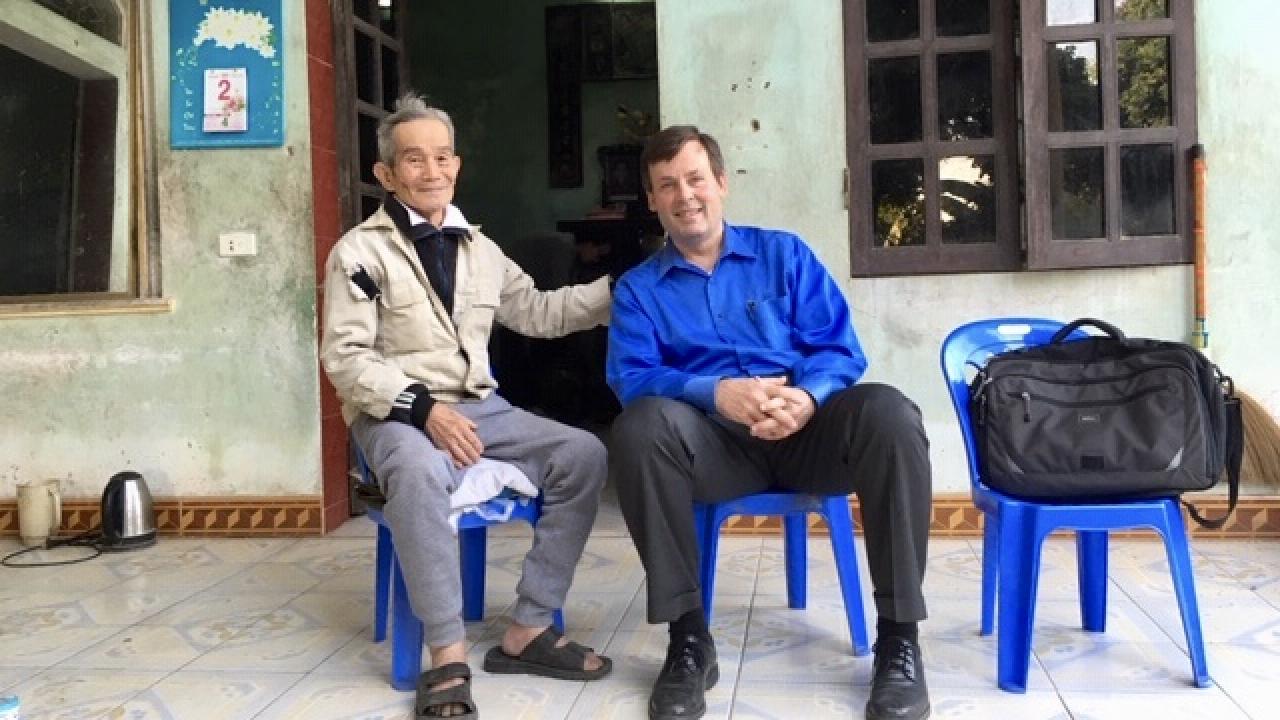
Caring for Caregivers: UC Davis Global Affairs Seed Grant Helps Spur $3 Million NIH Grant
Ladson Hinton is a geriatric psychiatrist, social scientist, health services researcher and professor in the Department of Psychiatry and Behavioral Sciences at the UC Davis School of Medicine. With over two decades of interdisciplinary and intercultural research under his lab coat, he has become an expert on the sociocultural dimensions of dementia-related illness—and the caregiving this calls for.
Thanks to a $15,000 Global Affairs Seed Grant for International Activities, with matching funds from the UC Davis School of Medicine and the Betty Irene Moore School of Nursing at UC Davis, Hinton was able to strengthen partnerships with key institutions and stakeholders in Vietnam, leading to $3 million in grant funding from the NIH National Institute on Aging to research Alzheimer’s and family caregiving within Vietnam’s rapidly aging population.
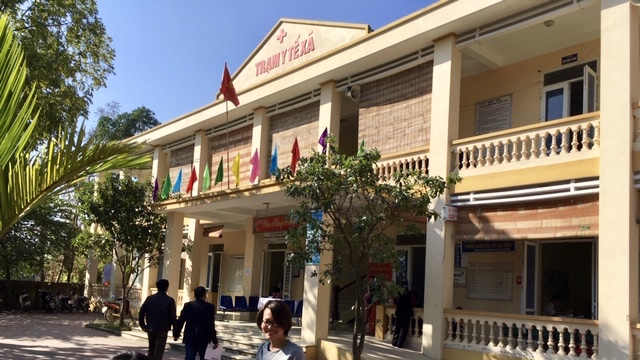
“The Global Affairs funding was critical in terms of forming and strengthening those partnerships,” says Hinton.
“When our partners from Vietnam visited UC Davis, they met with Vice Provost and Associate Chancellor Joanna Regulska and others, which helped demonstrate UC Davis’ commitment to doing work in Vietnam. The Seed Grant, along with Global Affairs support, has really been an important part of the success we’ve had in getting this large National Institute on Aging grant."
Another outcome of the seed grant funding Hinton secured: the opportunity to collaborate with the School of Nursing.
In September 2018, Hinton and former Betty Irene Moore School of Nursing Dean Heather M. Young traveled to Vietnam to participate in the country’s first National Dementia Conference, joining leading researchers from around the world to share best practices from the field and conduct a workshop on aging, caregiving and dementia.
“I’m very hopeful that the seed grant funding will stimulate continued collaboration between our partners in Vietnam, the School of Medicine and the School of Nursing at UC Davis,” he says.
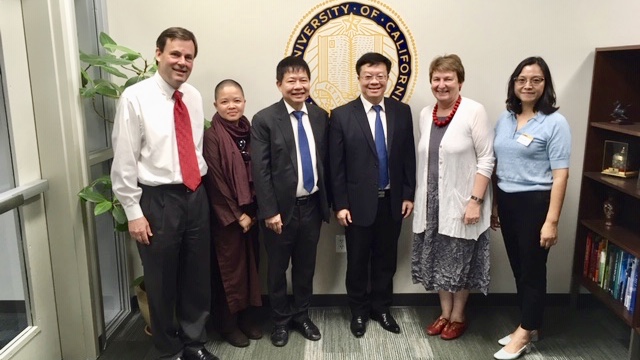
Bidirectional Cultural Care
Vietnam is one of the fastest aging societies in the world, with the country expected to experience a massive increase in the number of older adults with Alzheimer’s disease and related dementias. Moreover, many mental health concerns related to dementia, such as depression and memory loss, get conflated with simply “getting older,” and therefore go ignored.
Hinton’s National Institute on Aging grant aims to remedy this.
“We are doing a large clinical trial to see whether or not an intervention that is effective in the U.S. is also effective for family caregivers of persons with dementia in Vietnam,” he says.
"The work that we’re doing in Vietnam may have beneficial implications for intervention to support Vietnamese family caregivers in the U.S., so there’s a real bidirectional flow of information and knowledge from the global back to our local area.”
In addition to the clinical trial, Hinton and his grant collaborators are focusing on strengthening research capacity through network-building and mentorship, including pairing Vietnamese investigators with investigators in other countries to help convene conferences in Vietnam and foster international collaboration.
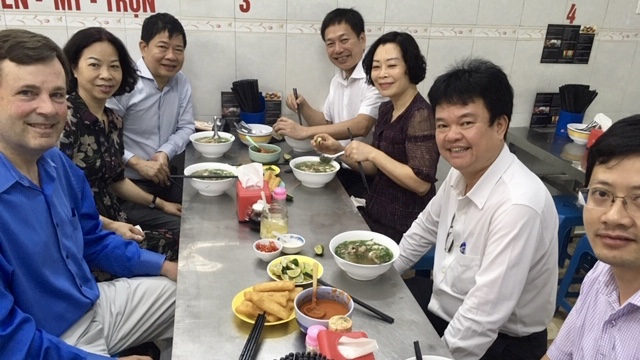
“In addition to these efforts, it’s been really nice to work with postdoctoral fellows and junior faculty here at UC Davis who are doing important work for the Vietnamese community,” says Hinton.
To help facilitate this project, Hinton has signed on UC Davis undergraduate students Duyen Tran and Mai Nguyen, who were both born in central Vietnam.
“These students have been really helpful,” says Hinton. “Both of the undergraduates are Vietnamese and fully bilingual and bicultural, so by being research assistants on this project they’re learning a lot more about the field of aging and conducting research in Vietnam.”
Through the Seed Grant funding, fourth-year UC Davis medical student Donna Bui was able to spend three weeks conducting research at the Vietnam National Geriatric Hospital in Hanoi, where she observed the clinical care of older adults, interviewed physicians and evaluated a geriatrics workshop for health care providers.
“It’s gratifying to see that through the seed grant funding and a smaller pilot grant from NIH we’ve been able to grow a larger portfolio of research and collaborations,” says Hinton. “I’m really excited about how this will develop over the next three to five years, including collaborating with interdisciplinary groups on campus such as the New Việt Nam Studies Initiative led by Dr. Kieu-Linh Caroline Valverde.”
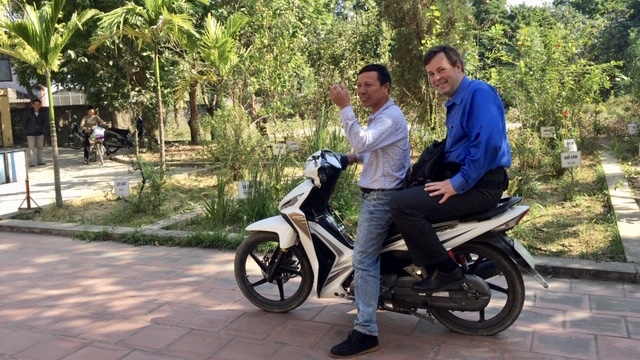
Clinical, Cultural, Social
During Hinton’s years as a resident, he completed a postdoctoral fellowship at Harvard University, working with cultural psychiatry pioneer Arthur Kleinman and others on an NIH grant exploring how dementia caregiving and dementia were perceived within culturally diverse groups in the U.S.
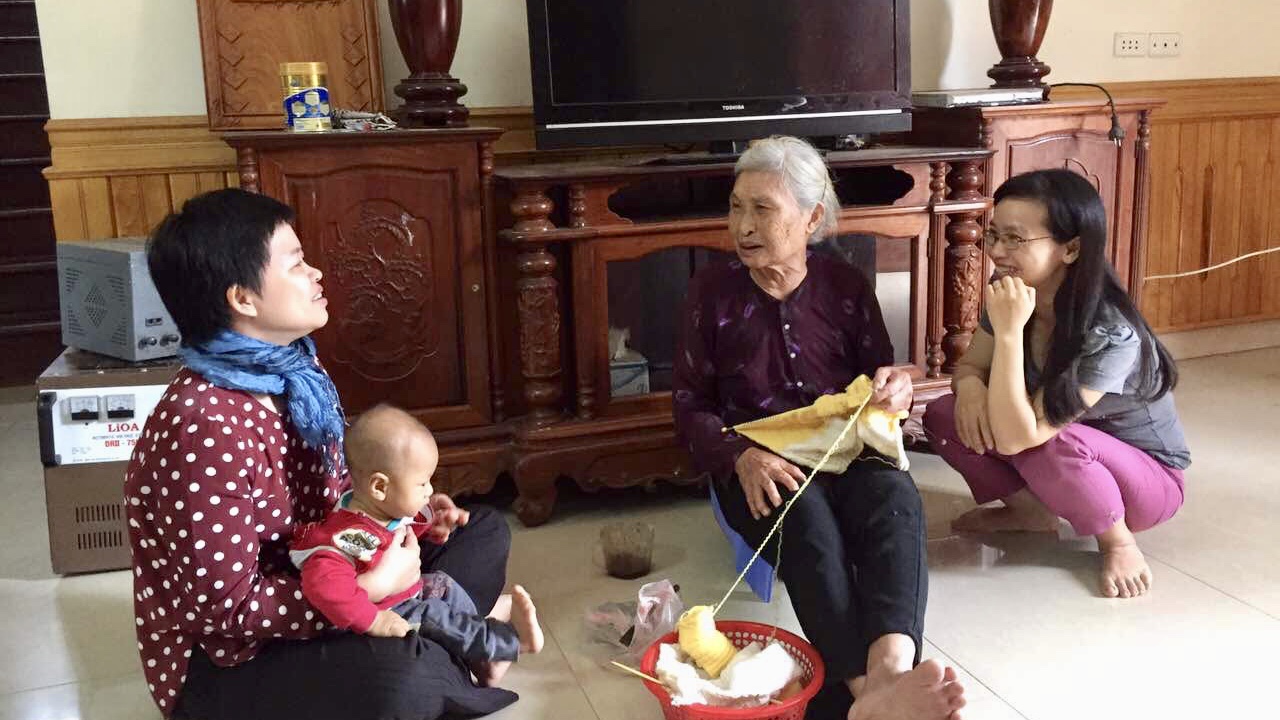
“It was through actually talking with family caregivers about their experience in providing care to a loved one with dementia that I really got interested in geriatric psychiatry—not only from a research standpoint but also from a clinical and humanitarian standpoint,” he says.
For Hinton, it was the “human side” of things that led him to an interdisciplinary career in medicine: hearing caregivers’ very personal and even gripping stories, learning about their struggles when accessing the health care system, seeing how much they valued caring for a family member.
“I was very intrigued by hearing those stories, and that really motivated me to learn more about the field and eventually to become a geriatric psychiatrist,” he says.
“The social sciences really allow you to see not simply the medical condition, but the complexity of the human experience. In order to really deliver care that’s patient and family caregiver centered, we have to be able to empathize with and understand the perspectives of the people we’re working with.”
This is part of a series featuring recipients of Seed Grants for International Activities, a UC Davis Global Affairs program that supports innovative faculty research that is both interdisciplinary in nature and international in collaboration.